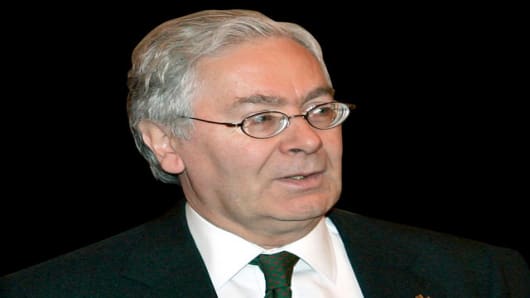The Bank of England hit back on Thursday at accusations it handled poorly the Northern Rock crisis and denied it had performed a U-turn over its stance on not bailing out markets.
Governor Mervyn King said the central bank had changed tack to offer an extra 10 billion pounds ($20 billion) in three-month loans on Wednesday because of the impact on confidence of huge queues of customers waiting to withdraw money from Northern Rock.
King said concerns about the banking system as a whole had led to the new loans rather than the need to help out one firm. He added that the crisis of confidence might not have happened at all had the central bank been allowed to be more discreet as lender of last resort.
"The way in which the Bank would have preferred to do it on this occasion is to have acted covertly as lender of last resort," he told parliament's Treasury Committee.
But the advice from meetings with the Financial Services Authority and the Treasury was that this was not possible.
King has come under severe criticism over his role in the handling of the crisis surrounding mortgage bank Northern Rock which started last week after it had to seek an emergency funding line from the Bank of England.
Thousands of savers queued to get their savings out from Britain's fifth-biggest mortgage lender until the government stepped in on Monday to guarantee their deposits and prevent the bank run from spreading panic to customers at other banks.
King said the bank's concerns about the dangers of removing "moral hazard" by rescuing investors from the consequences of bad financial decisions, was a serious issue.
"The announcement of a guarantee, had it come before the run on Northern Rock, would indeed have been ... an irresponsible thing to have done," King said.
He also said cutting interest rates at the first sign of a problem in the banking system was not the way to go.
"Taking the easy option, giving in the short run without looking to the long-run consequences of those actions is damaging," said King.
New System
Shares of embattled Northern Rock continued to fall on Thursday and some commentators say King may have to resign for not having acted sooner to ease money market tensions.
King has taken a hard line. Central banks, or taxpayers, cannot be expected to bail out investors who make bad decisions. Doing so would only encourage more risk-taking and eventually an even bigger mess, he said.
While he insisted it was right to have waited before guaranteeing deposits, King said there should be some reform of British systems for protecting savers and helping ailing banks.
"Our system for dealing with insolvency of banks and deposit insurance is markedly inferior to other countries," he said. "I think this is the unintended consequence of different pieces of legislation coming together."
Many bankers have been upset with the bank's actions over the last month. More than happy for the authorities to be hands-off in a market upswing, they are looking for someone to blame on the way down.
There are also signs some officials at the Financial Services Authority, Britain's financial regulator, might be trying to shift blame over to the central bank.
Prime Minister Gordon Brown has given King his backing. A senior government source said reports the government was sharpening its knife for King were wide of the mark.
The problems with Northern Rock arose because lending between financial institutions all but dried up, sending the cost of borrowing even for three months soaring as banks worry about each others' exposure to dodgy U.S. mortgage debt.
Unlike the Federal Reserve and the European Central Bank, the BoE has not poured billions into money markets at cheap rates.
King said just last week it would not try to bring three-month rates down. Then the BoE on Wednesday offered an extra 10 billion pounds next week to bring 3-month rates down, in an apparent U-turn.
"The real aim of trying to minimise moral hazard ... is not to provide liquidity at a zero cost and we are not doing that," King said. "The concerns that led me to want to propose this yesterday were concerns about the banking system as a whole."
Any borrowing will also be at a penal rate -- more than 6.75% -- and funds will not be unlimited.


